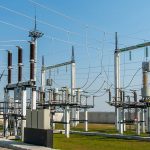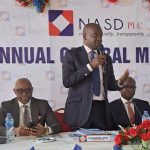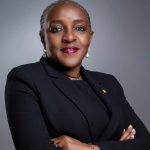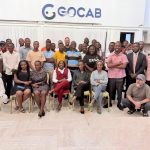General
Nigeria’s GBS Market at $286.8m, S/Africa at $4.7bn, Egypt at $4bn
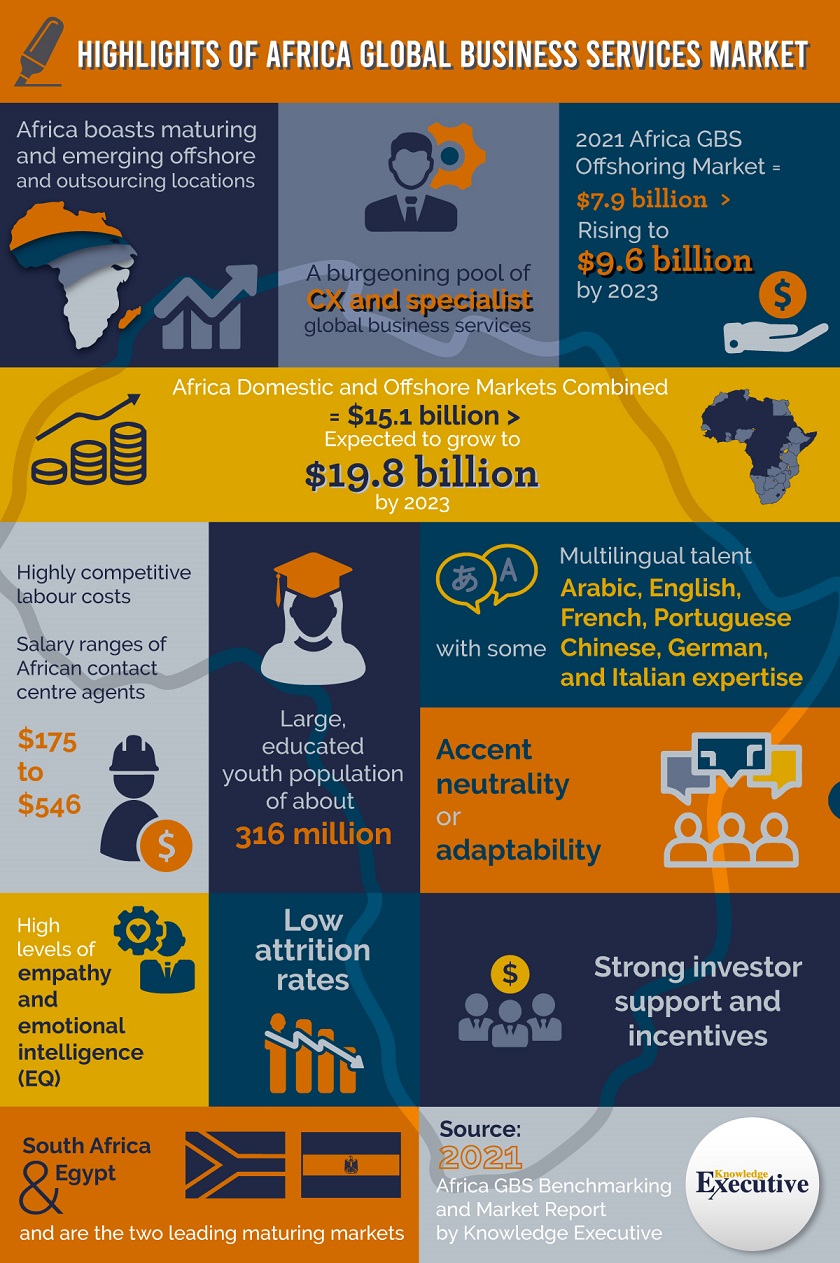
By Modupe Gbadeyanka
There are strong indications that in 2023, the global business services (GBS) market in Africa will worth $19.8 billion, higher than the current value, $15.1 billion.
According to the 2021 Africa GBS Benchmarking and Market Report by Knowledge Executive, the African continent will play a major part in the sector in the future because of its vast labour.
In the report, it was stated that business process outsourcing (BPO) and information technology outsourcing (ITO) are at the forefront of Africa’s rapid growth rates.
This growth, it said, is bolstered by multiple factors, including improved economic governance, relative political stability, an abundance of educated youth within the continent’s labour pool, comparatively lower salary and labour costs, in addition to focused efforts from African policymakers to support this crucial sector.
The report stated that the past year has accelerated outsourcing adoption to reduce costs and maintain revenue across the globe – and Africa has emerged as a significant beneficiary.
It was disclosed that the continent was in the developing stage of the GBS lifecycle, but already showing signs of global competitiveness and rapid maturity.
According to the report, South Africa is the continent’s largest GBS player by market share (domestic and international), valued at an estimated $4.7 billion.
The local sector employs over 261,082 domestic and international service workers from the country’s sizeable English-speaking workforce with competencies across most outsourcing services, including digitally-enabled contact centres and customer experience lifecycle management services. Surveyed enterprise executives rated the country best for contact centre voice, back-office processing and customer administration service delivery.
Egypt has the second largest domestic and international GBS market share on the continent, valued at $4 billion (excluding IT services).
The country offers a highly-skilled, multilingual, diverse talent pool, with competitive labour costs and the second-largest youth population in Africa (36.3 million citizens aged between 18-35 years). The native Arabic language also opens Egypt to the Arabic market of 300 million consumers.
Africa’s largest economy by GDP ($448 billion), Nigeria, boasts a well-established ICT sector – the largest on the continent.
This feature serves as an excellent foundation for developing the country’s GBS market, which is already valued at an estimated $286.8 million and employing approximately 16,540 workers.
Coupled with a focus on sector-specific skills and education, the country stands poised to take advantage of the largest population of English speakers in Africa and the highest number of youths aged between 18-35 years in Africa (53 million).
Smaller nations are also capitalising on this increasing international demand. Rwanda is an emerging GBS market with a large population of English and French speakers able to service English and Francophone countries. It offers reliable and advanced communications infrastructure with 95% LTE network coverage.
Botswana is another emerging GBS location. The country boasts macroeconomic stability and offers attractive investment incentives and a growing pool of educated, English-speaking workers.
Senegal has become a popular French alternative market for BPO services. Ghana boasts a scalable pool of English-speaking and computer literate talent and a growing youth population. Zimbabwe has bold GBS development plans based on its highly educated talent pool for niche services.
Investing and buying on the continent continues to be a venture filled with potential and undiscovered returns. And as more international businesses look to do so, insights such as those gleaned from the Africa GBS Benchmarking and Market Report will be invaluable in making informed decisions on outsourcing, co-sourcing or expansion.
The report said it got its findings from interviews with over 140 global enterprise executives from North America and European organisations that outsource, or plan to outsource, to Africa.
In addition, profiling surveys were conducted on over 500 GBS service providers and delivery centres across 19 African countries. These markets represent a mix of mature, emerging and nascent GBS locations in Africa that now serve as key locations for global and local investors and buyers.
General
DSS Accuses Malami, Son of Terrorism Financing in Court
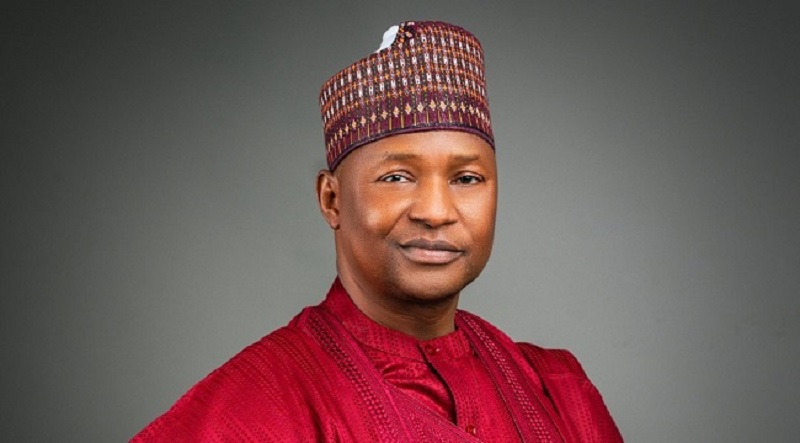
By Adedapo Adesanya
The Department of State Services (DSS) has arraigned the former Attorney General of the Federation (AGF) and Minister of Justice, Mr Abubakar Malami, and his son, Mr Abudlazizz Malami, on a five-count charge of abetting terrorism financing and illegal possession of firearms.
They were arraigned before Justice Joyce Abdulmalik of the Federal High Court in Abuja, where they pleaded not guilty to the charges.
In the charge, the former AGF was accused of knowingly abetting terrorism financing by refusing to prosecute terrorism financiers whose case files were brought to his office as the AGF in the last administration for prosecution.
Recall that the secret police had arrested Mr Malami, shortly after his release from Kuje prison in Abuja more than two weeks ago after Justice Emeka Nwite of the Federal High Court in Abuja granted him and two others bail in the sum of N500 million in another case involving the Economic and Financial Crimes Commission (EFCC).
Mr Malami and his son are also accused by the DSS of engaging in conduct in preparation to commit act of terrorism by having in their possession and without licence, a Sturm Magnum 17-0101 firearm, 16 Redstar AAA 5’20 live rounds of Cartridges and 27 expended Redstar AAA 5’20 Cartridges.
His arrest in January followed weeks of reports of surveillance by the secret police in front of the prison facility since the time Mr Malami, his wife and son were remanded there over the money laundering charges.
As per reports, Mr Malami had gathered that he would be picked up upon regaining his temporary freedom and so decided to wait out the DSS. However, after his eventual emergence, the operatives took the ex-AGF into detention again.
General
Lagos Launches Coastal Community Responder Programme for Waterways Safety
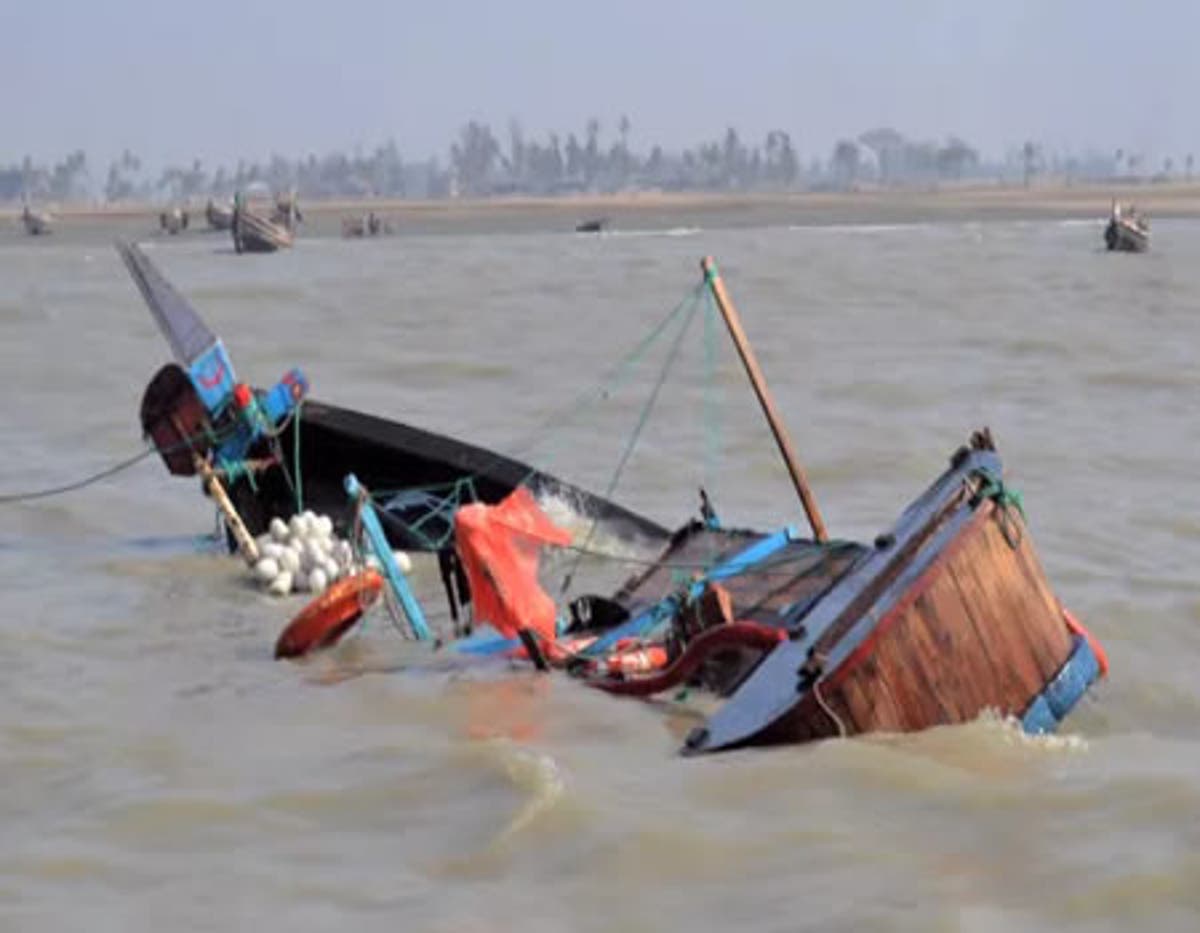
By Adedapo Adesanya
The Lagos State Waterways Authority (LASWA) has initiated an inter-agency partnership with the Centre for Rural Development (CERUD) to establish the Coastal Community First Responder Programme (CCFRP).
The first responder programme is aimed at promoting safe and secure transportation across Lagos waterways.
The initiative was unveiled during a meeting between a LASWA delegation and officials of the Ministry of Local Government, Chieftaincy Affairs and Rural Development at the secretariat in Alausa.
Leading the LASWA team, Mr Olademeji Shittu said the programme is designed to reduce fatalities and material losses on Lagos waterways, particularly in hard-to-reach coastal communities.
According to Mr Shittu, the CCFRP will focus on empowering community volunteers through targeted capacity building for sustainable rural development, while also equipping them with relevant skills that can enhance employability within the maritime sector.
He noted that trained volunteers will serve as community-based first responders, working in close collaboration with LASWA to strengthen search and rescue operations.
Providing the rationale for the programme, Mr Shittu highlighted the recurring cases of marine incidents and fatalities on Lagos waterways, often worsened by delayed emergency response in remote coastal areas.
He explained that residents of these communities are usually the first on the scene during accidents, making it necessary to formalise their role through structured training and partnerships.
He added that the collaboration with CERUD will help create a sustainable framework that aligns community development with safety and emergency response, while fostering a sense of ownership and responsibility among coastal residents.
According to a statement, the Coastal Community First Responder Programme is expected to enhance emergency preparedness on Lagos waterways, improve response times during marine incidents, and contribute to safer water transportation across the state.
General
NLC, TUC Suspend Planned Protest, Ask FCTA Workers to Resume
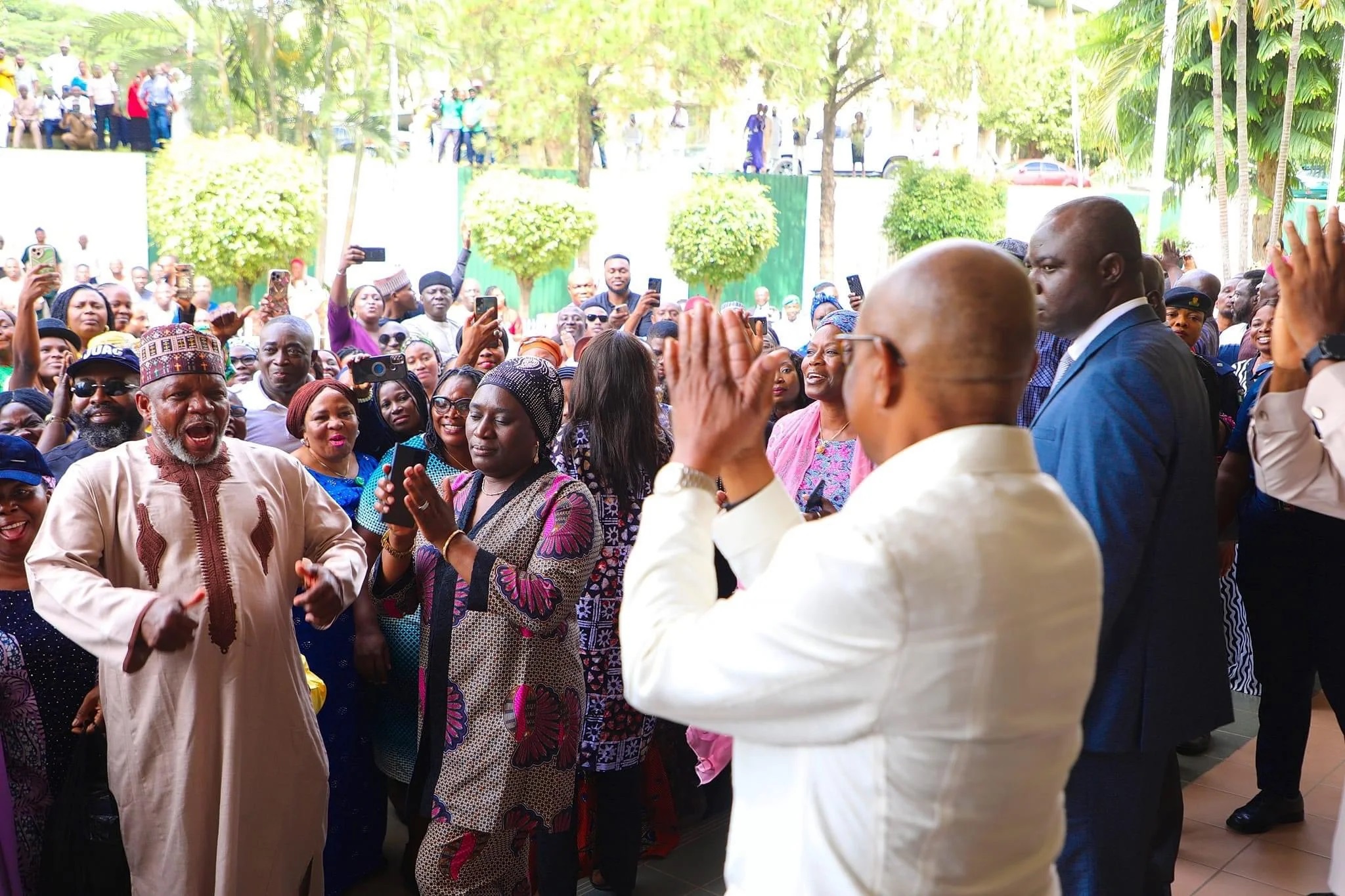
By Adedapo Adesanya
The Nigeria Labour Congress (NLC) and the Trade Union Congress (TUC) have suspended their planned protest in the Federal Capital Territory and instructed workers under the Federal Capital Territory Administration (FCTA) to return to their duties with immediate effect.
The directive followed an overnight engagement involving labour leaders, the Minister of the FCT, Mr Nyesom Wike, and members of the Senate Committee on the FCT.
The meeting, which began late on Monday, stretched into the early hours of Tuesday, culminating in an agreement that led to the unions’ decision to halt the protest action and restore normal activities across FCTA offices.
This comes after Justice Emmanuel Subilim of the National Industrial Court issued an interim order restraining the NLC, TUC, and three others from embarking on any form of industrial action or protest.
Ruling on an ex-parte application filed by the Minister of the FCT and the FCT Administration, Justice Subilim granted an interim order restraining the 1st to 5th respondents and their privies or agents from embarking on strike pending the hearing of the motion on notice, also ordering the 5th-9th defendants who are security agencies to ensure no break down of law and order.
The ex-parte motion, which was filed by the counsel to Mr Wike and the FCTA, Ogwu Onoja, submitted that the Chairman of the FCT council had sent a message of mobilization to members and affiliated unions for a mass protest scheduled for February 3.
This move, he noted, was in violation of the orders of court, adding that after the ruling of the court on January 27, the order of the court was served on the defendants, same day the NLC and TUC issued a statement to all affiliated unions to intensify and sustain the strike.
The statement jointly signed by both unions directed that the striking workers should resume the strike as the unions’ counsel, Mr Femi Falana, has filed an appeal against the interlocutory ruling.
He further pointed out that With the statement, JUAC issued a circular directing all employees to continue the strike.
This position they say is aimed at causing break down of law and order in the Nations capital.
The court subsequently adjourned the case until February 10 for hearing.
-

 Feature/OPED6 years ago
Feature/OPED6 years agoDavos was Different this year
-
Travel/Tourism9 years ago
Lagos Seals Western Lodge Hotel In Ikorodu
-

 Showbiz3 years ago
Showbiz3 years agoEstranged Lover Releases Videos of Empress Njamah Bathing
-

 Banking8 years ago
Banking8 years agoSort Codes of GTBank Branches in Nigeria
-

 Economy3 years ago
Economy3 years agoSubsidy Removal: CNG at N130 Per Litre Cheaper Than Petrol—IPMAN
-

 Banking3 years ago
Banking3 years agoSort Codes of UBA Branches in Nigeria
-

 Banking3 years ago
Banking3 years agoFirst Bank Announces Planned Downtime
-

 Sports3 years ago
Sports3 years agoHighest Paid Nigerian Footballer – How Much Do Nigerian Footballers Earn





